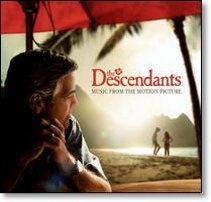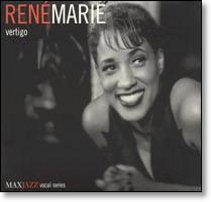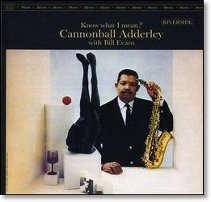A Consumer Guide to the Trailing Edge: March, 2012
Recycled Goods (#95)
by Tom Hull
Short month, especially with that two-week donut hole in the middle when I took a break from the warmest winter in memory to chill out in Detroit. Only reason there's much to show for here is my attempt to match up Concord's OJC reissues with gaps in my experience. I thought I might add some more recent reissues under "Briefly Noted" but Concord's own website makes this difficult: they list the Terry and Tyner records as new "Orrin Keepnews Editions" but every other source dates those reissues to 2007, and I gave up trying to figure out what's what. Thought I'd find more winners there, but I had already picked out the classics -- see the previously-graded list at the end of "In Series."
 |
 |
 |
The Descendants [Music From the Motion Picture] (1930-2010 [2011], Sony Masterworks): The film, set in Hawaii, stars George Clooney as the trustee of a large parcel of virgin Hawaiian beachfront property, inherited from ancestors including King Kahehameha and the haole King family. He is faced with two grave decisions: to liquidate the trust, making his many cousins rich, and to come to grips with his wife's coma and approaching death. The soundtrack cushions the somber subject matter with gentle but equally somber Hawaiian classics dating as far back as Sol Hoopii in 1930. Works as a much better than average primer, probably because it avoids the fake tourist cheer without denying the archipelago's natural lushness. A-
René Marie: Vertigo (2001, MaxJazz): Jazz singer, wrote 3 of 11 songs here. Didn't start until in her 40s, but she's brimming with poise and savvy, nailing songs from "Dem Dere Eyes" to "Blackbird" with original turns, scatting effectively, slotting in choice bits of Jeremy Pelt trumpet, Chris Potter sax, and John Hart guitar without losing her command. Only the title song overreaches, otherwise you wouldn't suspect that she has any limits. She got in trouble some years later slipping "Lift Ev'ry Voice and Sing" into the middle of "The Star Spangled Banner" -- an idea that must have come natural after her mash-up of "Dixie" and "Strange Fruit" here. A- [R]
In Series:
By the 1980s Fantasy Records had picked up a number of significant jazz labels, especially from the 1950s and 1960s -- notably Contemporary, Prestige, Riverside, Milestone, and Pablo. In 1983 they inaugurated a series of reissues under the Original Jazz Classics (OJC) rubric. Since the original artwork was used, the original branding was also easily discerned, so I tend to list them as, e.g., Prestige/OJC. The series eventually totalled more than 1000 titles. When Concord bought Fantasy, they should have folded their own superb catalog into the series, but instead they made a mess of everything, starting with massive deletions. Afterwards, they've done selective reissues, with one series each spotlighting legendary producers Orrin Keepnews and Rudy Van Gelder. In 2010 they started with another, called OJC Remasters with a distinct orange band near the spine. As best I can figure out, there are 20 CDs in this series -- they also seem to be available in a box set, but maybe not in the US.
I figured I'd use this as an opportunity to fill in my gaps: I've previously heard 8 of the records, leaving 12 unheard, so I streamed them from Rhapsody and wrote the following notes. The other 8 are listed below with my old grades. Perhaps no big surprise that the ones I picked up long ago are, on average, far better. That is, after all, the point of using reviews and experience to seek out what you really like.
Cannonball Adderley with Bill Evans: Know What I Mean? (1961 [2011], Riverside/OJC): Starts with solo piano, then Adderley's alto sax enters in a warm rush; with Percy Heath and Connie Kay, who (unlike Paul Motian) wouldn't dream of tripping the leaders up: the result is that the oft-introspective pianist flows exuberantly -- needless to say, so does Cannonball. A- [R]
Chet Baker: It Could Happen to You: Chet Baker Sings (1958 [2010], Riverside/OJC): Either you're touched by the poignant pathos in Baker's voice or repulsed; he has no range, scant command of nuance, and no tricks up his sleeve (other than his plaintive trumpet, rarely in evidence here), but for once he is utterly at ease with the melodies: try the bonus "You Make Me Feel So Young" -- probably cut from the original album because he sounds so skillful. B+(**) [R]
Art Blakey's Jazz Messengers: Ugetsu (1963 [2011], Riverside/OJC): Live at Birdland, with one of Blakey's strongest lineups: Wayne Shorter, Freddie Hubbard, Curtis Fuller, Cedar Walton, and Reggie Workman, stretched out on CD from 6 to 10 tracks; lots of energy, but the sound could be clearer, and they ramble a bit. B+(**) [R]
Ornette Coleman: Something Else!!!! (1958 [2011], Contemporary/OJC): With his white plastic alto sax, scratch tone, and knack for breaking the rules and making them work, Coleman's debut album portends the shape to come, but the piano has yet to make the break and seems out of place -- despite the impressive chops Walter Norris brings to the job; easy to underrate compared to what he did in the next two years, or to overrate it if you look for prophecy. B+(***) [R]
Miles Davis/Sonny Rollins: Dig (1951 [2010], Prestige/OJC): Davis's first album for Prestige, "featuring" Rollins -- released as a 10-inch at the time, reissued as an LP in 1956, with two bonus cuts added to the 1991 CD; he was 25 at the time, Rollins 21, and unherald Jackie McLean 19; basic bebop, most a dense thrash of rhythm with long, fast horn runs; the slower ones more articulate. B+(**) [R]
Bill Evans Trio: Explorations (1961 [2011], Riverside/OJC): Piano trio with Scott LaFaro and Paul Motian, the studio record before the trio's justly famous Village Vanguard records; scattered covers, sometimes remarkable, more often (to me, at least) inscrutable. B+(***) [R]
Ella Fitzgerald and Oscar Peterson: Ella and Oscar (1975 [2011], Pablo/OJC): An inevitable pairing as Norman Granz tries to extend his old label magic into his new label; Peterson is personable as always, and Fitzgerald knows her songbook, but this doesn't quite mesh. B+(*) [R]
Ella Fitzgerald and Joe Pass: Easy Living (1986 [2011], Pablo/OJC): Guitarist Pass produce a widely acclaimed solo album in 1973 called Virtuoso, and he worked that title to death in subsequent years, but he just adds frosting here -- Fitzgerald is the real virtuoso, standing nearly every song up, her timing and phrasing impeccable. B+(***) [R]
Vince Guaraldi Trio: Jazz Impressions of Black Orpheus (1962 [2010], Fantasy/OJC): Front cover has the hit song "Cast Your Fate to the Wind" in larger type than the title, and indeed the melody jumps right out at you; otherwise the piano trio's impressions make for minor pleasures, like the slightly oblique "Moon River." B+(**) [R]
Thelonious Monk: Thelonious Alone in San Francisco (1959 [2011], Riverside/OJC): Solo piano, something I've never got the hang of with Monk, probably because I expect that any pianist who would try such a thing must at least use both hands, preferably with a little extra on the left; the dissonances in Monk's original pieces create their own rhythm, especially on an opening "Blue Monk" that holds up especially well, but the most distinct thing about his covers is their simplicity. B+(**) [R]
Wes Montgomery: Boss Guitar (1963 [2010], Riverside/OJC): With Mel Rhyne on organ and Jimmy Cobb on drums, your basic Montgomery album with his sweet, slick guitar turned inward, not nearly as imposing as the title proposes. B+(**) [R]
Cal Tjader/Stan Getz: Sextet (1958 [2011], Fantasy/OJC): With Eddie Duran's guitar and Tjader's Latin vibes, this anticipates Getz's 1964 foray into bossa nova -- again, the sax seems lighter than air, floating away from the bubbly percussion and slinky guitar. B+(***) [R]
Other titles in the series that I already had graded from previous editions:
- Chet Baker: In New York (1958, Riverside/OJC) B+
- Dave Brubeck: Jazz at Oberlin (1953, Fantasy/OJC) A-
- Bill Evans: Waltz for Debby (1961, Riverside/OJC) A-
- Thelonious Monk: Monk's Music (1957, Riverside/OJC) A
- Thelonious Monk: Thelonious Monk with John Coltrane (1957-58, Jazzland/OJC) A-
- Joe Pass: Virtuoso (1973, Pablo/OJC) B+
- Art Pepper: Meets the Rhythm Section (1957, Contemporary/OJC) A
- Sonny Rollins: Way Out West (1957, Contemporary/OJC) A
Briefly Noted
Jim Black: Alasnoaxis (2000, Winter & Winter): Avant-drummer plugs in, with electric bass (Skuli Sverisson) and guitar (Hilmar Jensson), and Chris Speed on tenor sax or clarinet to smooth things out or rough them up. B+(***)
Oscar Peterson: Unmistakable (2011 [2012], Sony Masterworks): An update on the old piano roll trick, taking some kind of performance tape and tweaking it to drive a mechanical piano contraption, aiming for pristine sound -- the "binaural stereo" takes are billed as "the ultimate headphone experience" -- and sound personable enough to pass any blindfold test; Peterson is popular and distinctive enough that's an easily attainable goal. B+(*)
Clark Terry Quintet: Serenade to a Bus Seat (1957, Riverside/OJC): After duty with both Basie and Ellington, a straight hard bop set with one of the era's premier rhythm sections -- Wynton Kelly on piano, Paul Chambers on bass, Philly Joe Jones on drums -- and the ever-combative Johnny Griffin on tenor sax; Terry holds his own, and shines on "Stardust" when Griffin lays out. B+(***) [R]
McCoy Tyner: Horizon (1979 [1980], Milestone): Fast, not least the piano leads, but excessively fleshed out with two saxes or flutes (George Adams and Joe Ford), John Blake's violin, and Guilherme Franco's congas; sweeps you away at first, but grows tiresome by the end. B [R]
Betty Wright: I Love the Way You Love (1972, Alston): Soul singer from Miami on her second album, just 19 but a seasoned pro -- joined her family gospel group at 3 and picked her stage name at 11 -- with her biggest hit ("Clean Up Woman") behind her, but close enough she recaps it here. B+(**) [R]
Legend: B+ records are divided into three levels, where more * is better. [R] indicates record was reviewed using a stream from Rhapsody ([X] is some other identified stream source; otherwise assume a CD). The biggest caveat there is that the packaging and documentation hasn't been inspected or considered, and documentation is especially important for reissues. But also my exposure to streamed records is briefer and more limited, so I'm more prone to snap judgments -- although that's always a risk.
For this column and the previous 94, see the archive. Total records reviewed: 3181 (2783 + 398).
Copyright © 2012 Tom Hull.